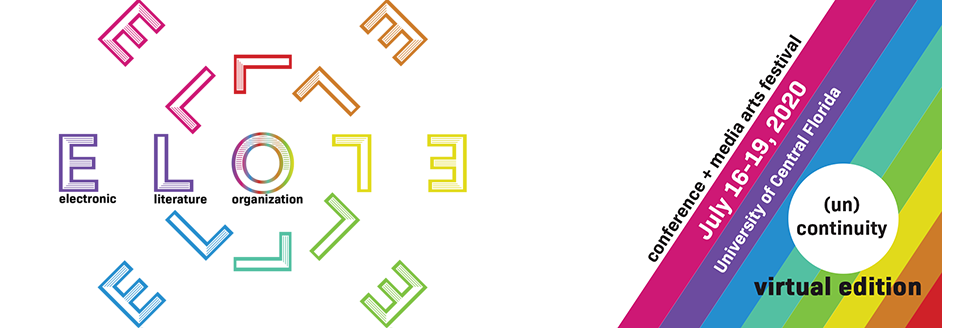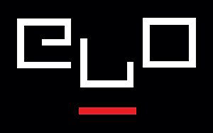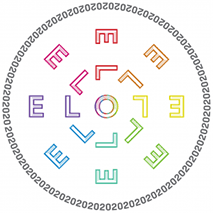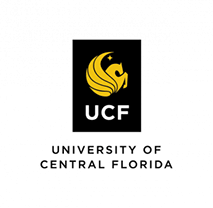Loading...
Submission Type
Conference Talk - Panel
Abstract
Building (Un)Continuity in Latin American E-Lit
Panelists: Claudia Kozak, Rodolfo Mata, Leonardo Flores, Cecily Raynor
Panel Description (Playlist)
This panel is concerned with the narratives and genealogies that emerge when we collect, publish, and research Latin American electronic literature. To what extent do we disrupt established literary continuities in order to build new ones based on technological, artistic, political, media, and other cultural factors. And how are emergent e-literary traditions, perceived by or reinscribed in established literary and cultural networks?
This bilingual panel has two papers in Spanish and two in English.
Paper #1: LitElat Collection, vol. 1: An Overlook to Grasping (Un)Continuity in Electronic Literature (video, language: Spanish)
Panelist: Claudia Kozak
Institutional Affiliation: Professor - Universidad de Buenos Aires/Universidad Nacional de Tres de Febrero/CONICET
Email: ckozak@filo.uba.ar / claudkozak@gmail.com
Description:
The presentation aims to show how this specific Latin American and Caribbean collection of e-lit can be a good overview from which we can grasp continuities and un-continuities between located and delocated e-lit within globalization. Despite each work in this collection has participated within its own historic context in global trends of e-lit, and beyond being the criterion that defined the inclusion of works in the collection the national background of each artist/author, I will evaluate the kind of Latin American and Caribbean specificity of the e-lit represented here. My hypothesis is that many of these works explore a political sense of e-lit, not only regarding a thematic focus but recurring to linguistic and constructive politicization in relation to hegemonic senses of global techno-life.
Paper #2: Decentering E-literary History (video, language: English)
Panelist: Leonardo Flores
Institutional Affiliation: Appalachian State University
Email: floresll@appstate.edu
Description:
The history of electronic literature, while international in scope, has been conceptualized largely through privileged access and mass adoption of digital technologies in North American and European countries. When we anthologize electronic literature in Latin America and the Caribbean we must rethink our histories, genealogies, and narratives of influence. Electronic literature is also conceptualized generationally, which can result in particular conceptions to exert hegemonic control over works that are not North American, European, or part of the 2nd generation of electronic literature. This presentation will explore lines of continuity and (dis)continuity in histories of electronic literature, especially when considering how people discover, explore, and adopt electronic literature in different technological and national contexts.
Paper #3: Latin American Electronic Literature: Native languages, Translation and Dialogue Forums (video, language: Spanish)
Panelist: Rodolfo Mata
Institutional Affiliation: Universidad Nacional Autónoma de México
Email: rmata194@gmail.com
Description:
For many years, several authors of electronic art or literature whose mother tongue is Spanish, Portuguese (the principal languages in Latin America regarding the number of speakers) or other languages spoken in Latin America, have seen themselves forced to produce and develop their works in English or to offer translations to this hegemonic language. Some of them even have their portfolios only in English or first in English and as a sideway option in their native languages. A mirrored situation is very rare if the original language is English or if it is another language as French, Italian or German, where the translation process stops when it reaches the lingua franca. For Latin Americans the opportunity to dialogue with other authors had language as a handicap and caused a discontinuity in the production of works in their native languages. The creation of a collection of Latin American and Caribbean e-literature works serves as a forum where this dialogue can have solid support.
Paper #4 E-Lit and National Newspapers: Nation, Identity and Digital Literary Content in Chile and Argentina (video, language: English)
Panelist: Cecily Raynor
Institutional Affiliation: McGill University
Email: cecily.raynor@mcgill.ca or cecily.raynor@gmail.com
Description:
The Arts and Letters section has long been an institution in Latin American newspapers - this is a place for authors’ work to be shared and to share opinions, for readers to come to get recommendations, analysis, commentary, insights - many different forms of literary content in one place. But how does this work online and how is this connected specifically to digitally born literature? What contradictions might emerge in these spaces, given their frequent link to canonical conceptions of literature? Finding and reading digital content is a process inflected by geographical location, search engines, keyword relevance, site rankings, paid advertising, and the seemingly infinite number of places a site visitor could read about literature. As newspapers adapt their formats and journalistic modes to an increasingly online readership, this presentation asks: how, from where, and with what intentions do people connect with digitally born literature on the websites of Chilean and Argentine newspapers? This presentation seeks also to address gaps and absences in electronic literature within national newspapers, and make predictions about future production.
Building (Un)Continuity in Latin American E-Lit
Building (Un)Continuity in Latin American E-Lit
Panelists: Claudia Kozak, Rodolfo Mata, Leonardo Flores, Cecily Raynor
Panel Description (Playlist)
This panel is concerned with the narratives and genealogies that emerge when we collect, publish, and research Latin American electronic literature. To what extent do we disrupt established literary continuities in order to build new ones based on technological, artistic, political, media, and other cultural factors. And how are emergent e-literary traditions, perceived by or reinscribed in established literary and cultural networks?
This bilingual panel has two papers in Spanish and two in English.
Paper #1: LitElat Collection, vol. 1: An Overlook to Grasping (Un)Continuity in Electronic Literature (video, language: Spanish)
Panelist: Claudia Kozak
Institutional Affiliation: Professor - Universidad de Buenos Aires/Universidad Nacional de Tres de Febrero/CONICET
Email: ckozak@filo.uba.ar / claudkozak@gmail.com
Description:
The presentation aims to show how this specific Latin American and Caribbean collection of e-lit can be a good overview from which we can grasp continuities and un-continuities between located and delocated e-lit within globalization. Despite each work in this collection has participated within its own historic context in global trends of e-lit, and beyond being the criterion that defined the inclusion of works in the collection the national background of each artist/author, I will evaluate the kind of Latin American and Caribbean specificity of the e-lit represented here. My hypothesis is that many of these works explore a political sense of e-lit, not only regarding a thematic focus but recurring to linguistic and constructive politicization in relation to hegemonic senses of global techno-life.
Paper #2: Decentering E-literary History (video, language: English)
Panelist: Leonardo Flores
Institutional Affiliation: Appalachian State University
Email: floresll@appstate.edu
Description:
The history of electronic literature, while international in scope, has been conceptualized largely through privileged access and mass adoption of digital technologies in North American and European countries. When we anthologize electronic literature in Latin America and the Caribbean we must rethink our histories, genealogies, and narratives of influence. Electronic literature is also conceptualized generationally, which can result in particular conceptions to exert hegemonic control over works that are not North American, European, or part of the 2nd generation of electronic literature. This presentation will explore lines of continuity and (dis)continuity in histories of electronic literature, especially when considering how people discover, explore, and adopt electronic literature in different technological and national contexts.
Paper #3: Latin American Electronic Literature: Native languages, Translation and Dialogue Forums (video, language: Spanish)
Panelist: Rodolfo Mata
Institutional Affiliation: Universidad Nacional Autónoma de México
Email: rmata194@gmail.com
Description:
For many years, several authors of electronic art or literature whose mother tongue is Spanish, Portuguese (the principal languages in Latin America regarding the number of speakers) or other languages spoken in Latin America, have seen themselves forced to produce and develop their works in English or to offer translations to this hegemonic language. Some of them even have their portfolios only in English or first in English and as a sideway option in their native languages. A mirrored situation is very rare if the original language is English or if it is another language as French, Italian or German, where the translation process stops when it reaches the lingua franca. For Latin Americans the opportunity to dialogue with other authors had language as a handicap and caused a discontinuity in the production of works in their native languages. The creation of a collection of Latin American and Caribbean e-literature works serves as a forum where this dialogue can have solid support.
Paper #4 E-Lit and National Newspapers: Nation, Identity and Digital Literary Content in Chile and Argentina (video, language: English)
Panelist: Cecily Raynor
Institutional Affiliation: McGill University
Email: cecily.raynor@mcgill.ca or cecily.raynor@gmail.com
Description:
The Arts and Letters section has long been an institution in Latin American newspapers - this is a place for authors’ work to be shared and to share opinions, for readers to come to get recommendations, analysis, commentary, insights - many different forms of literary content in one place. But how does this work online and how is this connected specifically to digitally born literature? What contradictions might emerge in these spaces, given their frequent link to canonical conceptions of literature? Finding and reading digital content is a process inflected by geographical location, search engines, keyword relevance, site rankings, paid advertising, and the seemingly infinite number of places a site visitor could read about literature. As newspapers adapt their formats and journalistic modes to an increasingly online readership, this presentation asks: how, from where, and with what intentions do people connect with digitally born literature on the websites of Chilean and Argentine newspapers? This presentation seeks also to address gaps and absences in electronic literature within national newspapers, and make predictions about future production.




Bio
Claudia Kozak earned a Ph. D. University of Buenos Aires. She is a senior member of the Argentinean National Council for Scientific and Technological Research (CONICET); Professor at the Departments of Literature and Communication Studies, University of Buenos Aires. Director of Maestría en Cruces de Narrativas Culturales (UNTREF), which is part of the international program Erasmus + Masters Crossways in Cultural Narratives. She sits at Academic Council Ph. D. in Comparative Theory of Arts (UNTREF) and Board of Directors of Electronic Literature Organization (https://eliterature.org/). She currently coordinates litElat, Red de Literatura Electrónica Latinoamericana (http://litelat.net/) and Ludión. Exploratorio latinoamericano de poéticas/políticas tecnológicas (http://www.ludion.org). Her research focuses on digital literature and relationships between arts, technology and society. She is the author of the book Contra la pared. Sobre graffitis, pintadas y otras intervenciones urbanas (2004). Her other books as editor and author are: Tecnopoéticas argentinas. Archivo blando de arte y tecnología (2012, reprint 2015); Poéticas/políticas tecnológicas en Argentina (1910-2010) (2014); Poéticas tecnológicas, transdisciplina y sociedad. Actas del Seminario Internacional Ludión/Paragraphe (2011); Deslindes. Ensayos sobre la literatura y sus límites en el siglo XX (2006); Las paredes limpias no dicen nada (1991); Rock en letras (1990).
Professor Leonardo Flores is Chair of the English Department at Appalachian State University. He taught at the English Department at University of Puerto Rico: Mayagüez Campus from 1994 to 2019. He is President of the Electronic Literature Organization. He was the 2012-2013 Fulbright Scholar in Digital Culture at the University of Bergen in Norway. His research areas are electronic literature and its preservation via criticism, documentation, and digital archives. He is the creator of a scholarly blogging project titled I ♥ E-Poetry, co-editor of the Electronic Literature Collection, Volume 3, and has a Spanish language e-lit column in 80 Grados. He is currently co-editing the first Anthology of Latin American Electronic Literature. For more information on his current work, visit leonardoflores.net.
Rodolfo Mata holds a Ph D. in Latin American Literature from the Universidad Nacional Autónoma de México (UNAM). Initially he studied Industrial and Systems Engineering and worked ten years in the areas of pharmaceuticals and computing. He is now a researcher and professor at the UNAM. Since 2001 he is a member of the Sistema Nacional de Investigadores. He has published several works on the Mexican avant-garde poet José Juan Tablada, especially those related to his visual poetry, and on the relations between literature and science & technology, such as Las vanguardias literarias latinoamericanas y la ciencia (2003). He has translated Brazilian writers such as Haroldo de Campos, Paulo Leminski, Sebastião Uchoa Leite, Rubem Fonseca and Clarice Lispector, and is co-author of the anthologies Ensayistas brasileños: literatura, cultura y sociedad (2005) and Alguna poesía brasileña 1963-2007 (2009). He has published the poetry books Parajes y paralajes (1998), Temporal (2008), Qué decir(2011) and Nuestro nombre (2015); the electronic poem Silencio vacío (2014) and the plaquette Doble naturaleza (2015). He maintains the websites José Juan Tablada: letra e imagen, Qué decir and Bio Electric Dot where the digital poem Big Data has just been published.
Cecily Raynor (Ph.D. in Latin American Literature, Georgetown University, 2015) is an Assistant Professor of Hispanic Studies and Digital Humanities at McGill University in Montreal, Canada. Her research examines contemporary Latin American literature and cultural production in analogue and digital forms. In particular, she focuses on the relationship between locality and cultural production in contemporary Latin America as well as the digital sphere as an expanded territory for writing and reading literary texts in Spanish and Portuguese. Her recent work has been published in Digital Humanities Quarterly, the Arizona Journal of Hispanic Cultural Studies, Brasil/Brazil: A Journal of Brazilian Literature, Canada and Beyond: A Journal of Canadian Literary and Cultural Studies, and Estudos de Literatura Brasileira Contemporânea. Her first book, Local Lives, Global Spaces: Practicing the New Millennium in Latin America, is currently under contract at Bucknell University Press. Her second book project, an edited volume on digital culture in Latin America, is entitled Digital Encounters: Envisioning Connectivity in Latin American Cultural Production and is presently under review at the University of Toronto Press.